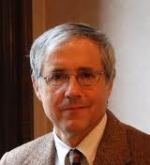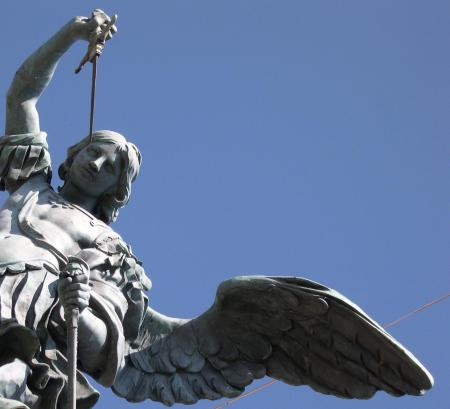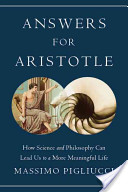James Kalb asks, “How Long Will Secular Liberalism Endure?” (Crisis Magazine, 8/26/13)
Secular liberalism, the dominant political ideology in Europe and North America, “is at odds with Catholicism,” Kalb warns, drawing our attention to what should be definitionally obvious. (By “Catholicism,” he means conservative Catholicism.) A “harmonious relationship” might have been possible, he says, if the secular state had not become over-weening in its attempts to “change the beliefs and attitudes of the people,” but Catholics are “increasingly required to conform to anti-Catholic norms” and even “punished as … criminal[s] for public assertion of Catholic moral doctrine.” The U.S. Government, in particular, is now “radically opposed to religion and natural law,” while “progressive utopians” have cast the Church as “intrinsically antisocial and oppressive.”
Kalb reminds us that Catholicism has always had its enemies—first, the Romans, then the Muslims, and finally the secular political systems of the past century. But, he adds, secular liberalism is fundamentally flawed insofar as (1) it “lacks a grounded principle of authority,” and (2) it “makes maximum equal satisfaction its highest good,” thereby placing ever-greater demands on public resources and undermining discipline, loyalty, and public spirit. Its system of control consists not of “threats and force,” but of “payoffs, propaganda, and regulation.” And yet, secular liberalism continues to appeal to the masses, who “believe they have a right to get what they want.”
Kalb’s thesis contains a number of glaring defects.
The first is his assumption that there is a bright line separating Catholics and secular liberals. The truth is that most Catholics, at least in Europe and North America, are, for all intents and purposes, secular liberals themselves. How else are we to explain the indifference of most of these Catholics to their church’s teachings about same-sex marriage and contraception? They have become “father-deaf” about such matters and no longer bother confessing what they no longer consider to be sins. By and large, they support the secular state, unlike many of the responders to Kalb’s article (the so-called “faithful” Catholics, as Crisis Magazine would have us believe), who proudly declare that they’ve stopped voting!
Second, generous government subsidies and tax breaks for religious institutions and programs in this country and abroad belie the claim that these governments are hostile to religion. Furthermore, what he describes as “radical opposition” to natural law is nothing more than the galling indifference of those who don’t take it seriously. Few of its proponents have even agreed about what it is. Historically, it has been used to justify slavery, primogeniture, monarchical absolutism, and the oppression of women. To the extent that our judges and legislators are aware of this, we can only hope that they will escalate their indifference toward natural law to actual hostility.
Kalb maintains that, while progressive Christians have largely sold out to the secular state, the Church has remained “independent and refractory.” Kalb is correct, if by “the Church” he means the U.S. Conference of Catholic Bishops or the global magisterium. The laity is another matter. Indeed, one might make the case that the laity in the U.S. and Europe have been “independent and refractory” vis-à-vis the magisterium.
Third, Kalb’s assessment of secular liberalism’s prospects is premised on the assumption that Catholicism has something better to offer. But Catholicism’s “grounded principle of authority” is a stock of myth, folklore, superstition, tradition, and scripture with little or no internal coherence and absolutely no empirical basis. U.S. constitutional and case law may be far from perfect, but at least it is a reasonably coherent corpus of decisions dating back to our nation’s founding, and it furthers the principles of justice and fairness that almost all Americans espouse.
Fourth, secular liberalism doesn’t need to operate through “payoffs, propaganda, and regulation” any more than Catholicism needs to operate through fear, coercion, and threats of eternal damnation. To say that secular states sometimes use propaganda is not to say that propaganda is necessary to sustain the secular state. To say that they sometimes over-regulate is not to say that they must. Likewise, the long and shameful history of Catholic conduct toward Jews, heretics, apostates, freethinkers, and homosexuals is not proof that Catholicism and oppression are inseparable. We can all do better.
Finally, does secular liberalism make “the maximum equal satisfaction its highest good,” as Kalb claims? Not at all. What secular liberalism wants to maximize is the flourishing of humans and other sentient beings. This has become, in Steven Pinker’s words, “the de facto morality of modern democracies, international organizations, and liberalizing religions.” And he adds, “…its unfulfilled promises define the moral imperatives we face today.”







